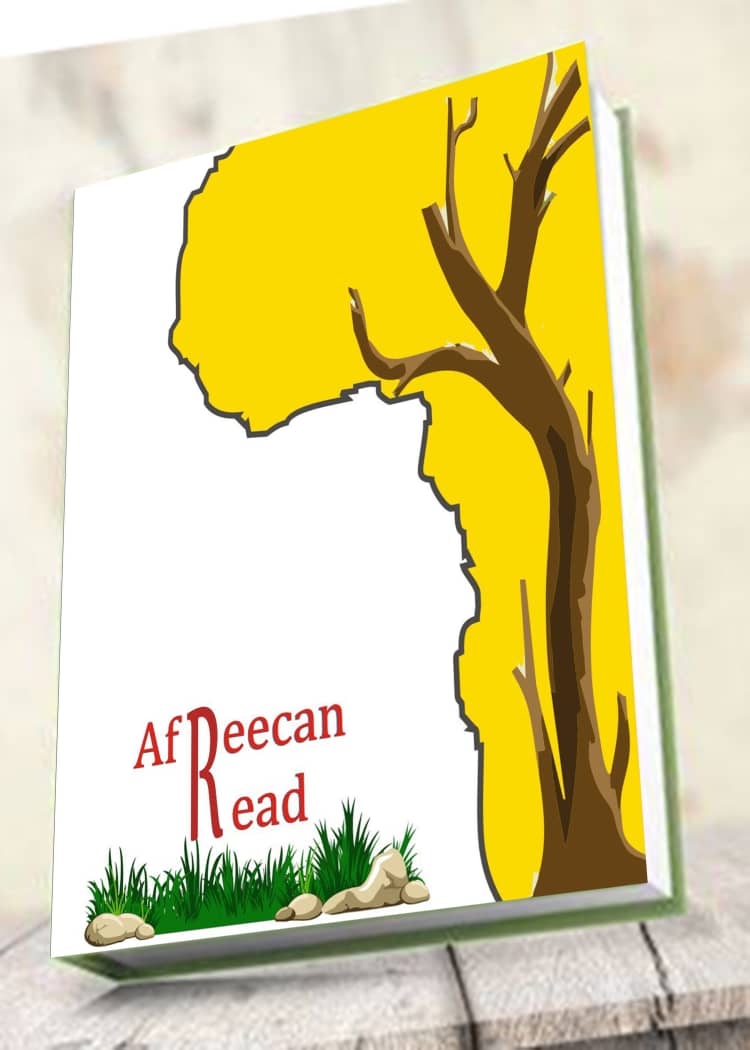On the evening of 22nd April, 2024, at Slang Global, somewhere on the streets of Ogidi Road Enugu, enthusiastic young Nigerian readers, many of whom came from university campuses in Enugu, Nsukka and Awka, gathered to celebrate the writing of an equally young Nigerian author who is fast becoming a literary icon. The event was a book reading hosted by Chiedoziem Chukwudera, the cofounder of the Eagle Nest Book Club, and was moderated by the ever radiant Iheoma Uzomba, poet and scholar. The book read and discussed was the magisterial short story collection, God’s Children Are Little Broken Things, by Arinze Ifeakandu.
Ifeakandu, whose titular short story was shortlisted for the Caine Prize, making him, as of then, one of the youngest to be on that shortlist, is a force to reckon with in contemporary Nigerian fiction. The gentleness with which his sentences unfold and the pointed gazes of his authorial eyes speaks not only to his craft, but also to his personality as I confirmed that evening. He is as gentle as his prose, but his sharp-mindedness is such that nothing leaves his sight without having received its proper attention; without its assumptions properly questioned and unpacked.
This makes his interview with Iheoma Uzomba, a poet whose scholarship points to that detailed keenness and gentleness characteristic of Arinze, an opportunity of learning for us the enthusiastic young readers ready to hear from our star. And ours he indeed is. He is as young as we are, graced one of the universities many of us currently attend, and as daring as we imagine we are. Uzomba in her questions help us see more of queerness as Arinze chronicles it in his collection. The stories become more real as we began to hear about their formative stages. Yes, they really happened in Nigeria, yes, as Obi Chibuihe Achimba would say, “We Are Queer and We Are Here.”
When the moderator took the question to homophobia, especially the type of homophobia that will make Nnamdi ask his victims in “Happy is a Doing Word,” to go on having sex so that he can identify the male from the female, the type that will make some group of boys want to rape the “spirit of gayness” away from another boy, she ends with the assertion that the “worst type of homophobes are the closet homosexuals,” an assertion Arinze wittingly disagrees with, “maintaining that the worst form of homophobes are the homophobes.” But he doesn’t just leave it at that, it rather became a lesson on the different ways homophobia can manifest. Arinze reminds us that even with all these different forms of manifestations, much attention must be paid to the root cause: the society’s interpretation of masculinity, a point the moderator also spoke elaborately on.
The audience had their chance to participate. Questions from the audience ranged from the role of defiance as played by the characters in the collection, a question raised by Afreecan Read’s immediate past Gist Corner editor, Jeremiah Mheumbeuter Orhemba, to questions on his characters ability to reconcile their religious beliefs and their condemned sexual orientation (think of Auwal, a Muslim father and Chief Emeka, a Christian, father and culture custodian) and many others, all of which Arinze gave detailed responses to.
To Jeremiah he notes that these characters, and indeed many other queer Nigerians living their truth in Nigeria, while their actions may be deemed defiant, are mostly not as consciously deciding to be defiant as much as they are consciously deciding to survive. The defiance therefore being a by-product of this survival quest. To the person who asked about the characters’ ability to reconcile their religious beliefs—in those religions that condemn queerness—and their queer existence, he spoke about compartmentalisation and how some people cannot do without some sort of spiritual anchor and the community the Church may provide them. He also spoke of self-acceptance in the place of institutional rejection, that act of placing the survival of the human person over that of the institution, to which I supplemented by speaking of the efforts of queer theologians in that regard.
When the evening got too queer, the culture journalist and critic, Emmanuel Esomnofu asked a question on craft, a timely reminder that we celebrate Arinze’s work, not just for its honest portrayal and humanisation of the queer experience, but also for its artistic brilliance, for the elevated nature of its language. Arinze’s response to the question is itself a master class on the crafting of sentences in a short story.
At the end of the event, we listened to Arinze read some passages from the collection and I must note that he reads as gently as he writes. He not only develops his characters to be their own humans, he also voices them uniquely, like a stellar solo dramatist. Books were signed after the reading, old friendships rekindled and new ones forged while the city of Enugu glowed better in the different colours of the rainbow.




Recent Comments